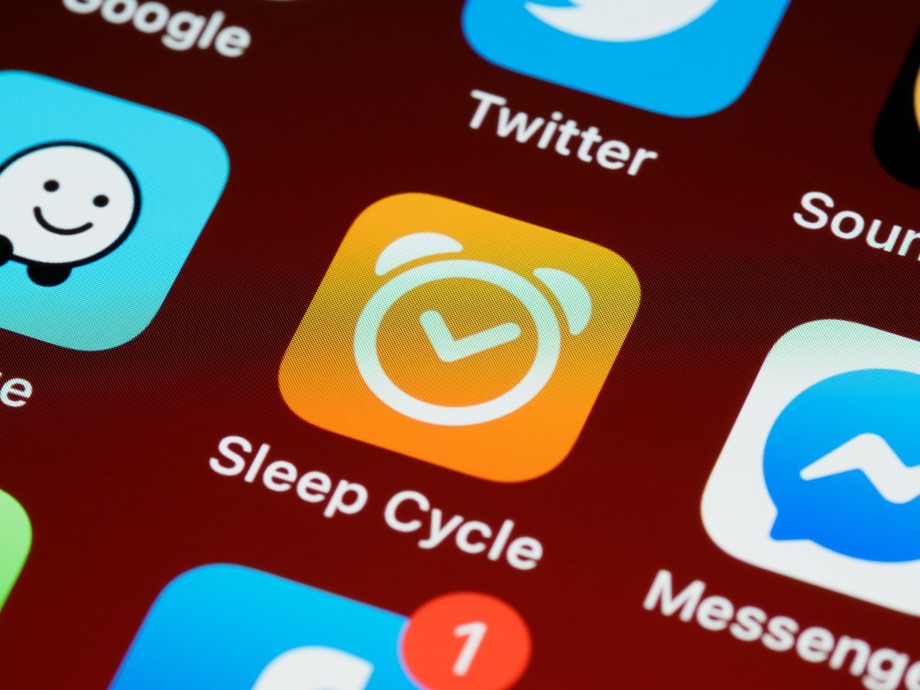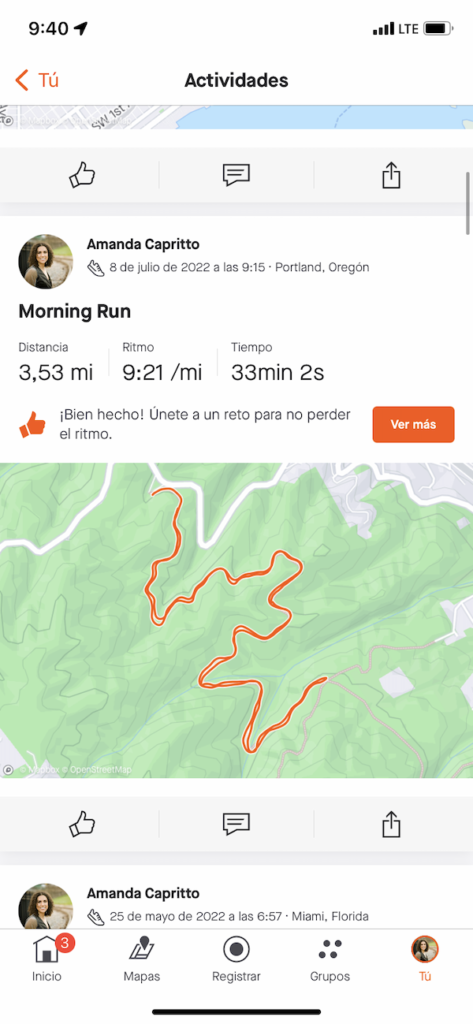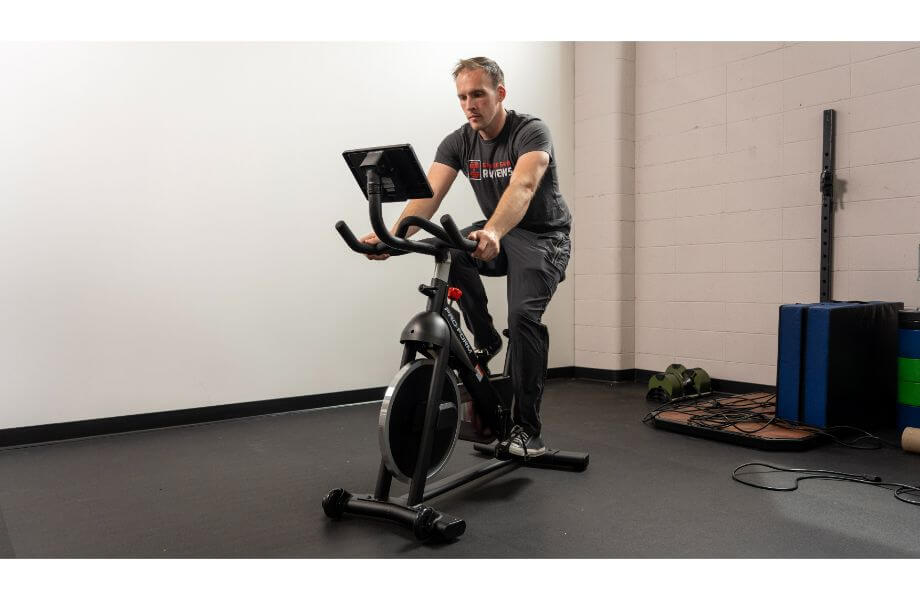We test and review fitness products based on an independent, multi-point methodology. If you use our links to purchase something, we may earn a commission. Read our disclosures.
A morning workout can be a great way to set the tone for the rest of the day, especially as you pursue your health and fitness goals. An early morning run can be an excellent cardio option, but if you’re not a morning person, you might be tempted to hit the snooze button on that alarm clock.
As a fellow night owl, I feel you. But don’t go hitting snooze just yet! Running in the morning can offer a long list of health benefits if done correctly.
Aerobic exercise, like running in the early morning, is known for its positive effects on our overall health. It can improve cholesterol levels, lower blood pressure, and even support weight loss efforts. But one of running’s most hyped benefits might be the infamous “runner’s high.”
Research1 suggests that the feel-good endorphins released as you run can help boost your mood, reduce stress levels, and improve executive functions. Sounds like a great way to start the day, right?
I think so, too. This article will discuss ways we can set ourselves up for success as we incorporate morning runs into our training plan, so we can maximize those benefits.
Get Enough Sleep
Our sleep habits matter, no matter when we decide to run. But just how many hours of sleep do we need to be prepared for our morning exercise? The ideal sleep duration will vary between individuals based on various factors, but the National Sleep Foundation2 recommends that the average adult gets between seven to nine hours of sleep every night.

To support good sleep quality, aim for consistency. Build a routine and try to go to bed at the same time every night. And those electronic devices? Say goodnight and leave them out of the room or at least turned to Do Not Disturb once you hit the sheets.
Lastly, try to avoid large meals, caffeine, and alcohol right before bed. Large meals may make it uncomfortable to lay flat, and that cup of coffee you might be tempted to enjoy after dinner may only charge your battery and keep you wide awake.
Lay Out Your Clothes the Night Before
This may seem silly, but trust me, it’s a game changer. Eliminate one of your morning decisions by setting out your training clothes the night before.
Mornings can be stressful. There’s no need to add to the chaos by riddling yourself with decisions, all before you’ve had a sip of your coffee. Planning your wardrobe ahead of time allows you to simply wake up, get dressed, and lace up your running shoes. One less obstacle to tackle before running first thing in the morning!
Eat and Hydrate Properly
What we eat today can significantly affect our training plans tomorrow, for better or worse. As a dietitian, you’ll never hear me call a food “good” or “bad,” but some foods might serve us better than others when it comes to our training plans.
Back in the day, the trend was to load up on carbs the night before a run, but now we’re seeing a need for more specific strategies. You’re not alone if you’re wondering what to eat before running in the morning. From recreational runners to those in the thick of marathon training, we all want to maximize our nutrition. So, what should you eat before running in the morning?
If fat-burning is your goal, you might consider fasted-state training. A 2016 systematic review3 concluded that low- to moderate-intensity aerobic exercise in a fasted state could help induce fat oxidation. Running in the morning on an empty stomach may help you lose weight, but it may not be appropriate for everyone.

If you have a high-intensity workout on your schedule, you may need to consume some carbohydrates before you lace up your trainers. Finding the right pre-workout snack might take trial and error. Try not to overdo it with protein, fiber, or fat. Instead, start by eating approximately 30 to 60 minutes before your run, and consider snacks such as whole wheat toast with nut butter, oatmeal with berries, or whole grain crackers and cheese slices. If you notice discomfort while training, give yourself more time between your snack and the beginning of your run.
Of course, nutrition needs are very individualized, so be sure to talk with your registered dietitian nutritionist to design a nutrition plan that’s right for you. And don’t forget to hydrate, hydrate, hydrate! Maintaining adequate hydration is key to supporting athletic performance, especially as we lose body water through sweat.
Wear Appropriate Clothing
Our clothing can significantly affect how much we enjoy our morning run. Have you ever been a mile into your five-mile run and realized that the jacket you were wearing was the most uncomfortable thing you could have possibly put on? It’s pretty dang distracting. Ask me how I know.
It may be a bit chilly if you’re running before the sun comes up, so consider dressing in layers. Light, loose layers allow you to remove pieces of clothing as needed as you warm up.
Even more important, make sure you’re wearing some reflective gear to catch the eye of drivers who may not expect morning runners on their commute to work. You can find reflective running vests, shoe lights, and even blinking headlamps.
Grab a Friend
Consider running with a training partner. Whether it’s your BFF, a family member, or a running coach, running with a buddy helps keep us accountable. In fact, recent research4 has shown that social ties can help improve a person’s participation in sports.
Another perk of running with a friend is the added layer of safety. People are more likely to give you space when running as a pair. Or if you happen to sprain an ankle or suffer another common running injury, you’ll have someone to walk you home or call for help. So, consider checking out your local running groups or starting your own!
Related: Calories burned walking a mile
Switch Up Your Running Route
Changing up your running trails can help you avoid the dreaded burnout while also maximizing your training efforts. Got a hilly race coming up? Try finding some running trails that offer changes in elevation to challenge different muscle groups and improve your VO2 max.

More importantly, switching your running route can also help keep you safe. If you start to get “hellos” and “good mornings” from the same people every day, your running route isn’t just part of your daily routine anymore. It’s also a part of theirs. Changing your morning routine can prevent someone with less-than-friendly intentions from using your running route against you. Stay safe, friends!
Running in the Morning: Final Thoughts
No matter what time of day you decide to run, you’re sure to notice some excellent health benefits. But the benefits of running in the morning might outweigh the temptation to hit the snooze button and opt for an evening run instead.
Finishing your morning run before your workday even begins can set your day up for success at all angles. Morning runs can boost your mood, reduce stress, and even influence other decisions that might affect your overall health.
If you’re thinking about switching from nighttime runs to morning runs, remember these tips:
- Get enough sleep.
- Lay out your clothes the night before.
- Fuel your body properly.
- Wear the right clothes.
- Run with a friend.
- Change up the running route.
Running in the Morning FAQs
Is it good to go running in the morning?
If you’re considering running in the morning vs night, running early in the morning can be a great way to get your cardio in, support your mental health, and reach your fitness goals. It’s essential, however, to make sure you do it safely. Be sure to get adequate sleep, fuel your body correctly, and wear the appropriate reflective gear.
Is it better to run in the morning on an empty stomach?
Nutrition needs are very individualized, but running on an empty stomach can be appropriate for some people. Generally speaking, fasted-state aerobic exercise (of light to moderate intensity) can help promote fat oxidation, or fat burn. But if your workout calls for high-intensity output, you will likely need a pre-run snack to sustain the duration of your training demands.
Is it OK to run right after waking up?
If you enjoy running right after you wake up, rock on. Going for a run before your day starts can be a great way to prioritize your health and fitness goals. Just remember that your body may need some time to wake up and warm up, so be patient at the beginning of your workout.
Is running 30 minutes in the morning good?
You bet! Everyone’s training needs differ, but 30 minutes is certainly enough to get your heart rate going. If you’re unsure what to include in your training schedule, consider working with a certified personal trainer to design a plan that fits your needs.
References
- Basso, J. C., & Suzuki, W. A. (2016). The Effects of Acute Exercise on Mood, Cognition, Neurophysiology, and Neurochemical Pathways: A Review. Brain Plasticity, 2(2), 127-152. https://doi.org/10.3233/BPL-160040
- Hirshkowitz M, Whiton K, Albert SM, et al. National Sleep Foundation’s sleep time duration recommendations: methodology and results summary. Sleep Health. 2015;1(1):40-43. doi:10.1016/j.sleh.2014.12.010
- Vieira AF, Costa RR, Macedo RC, Coconcelli L, Kruel LF. Effects of aerobic exercise performed in fasted v. fed state on fat and carbohydrate metabolism in adults: a systematic review and meta-analysis. Br J Nutr. 2016;116(7):1153-1164. doi:10.1017/S0007114516003160
- Franken, R., Bekhuis, H., & Tolsma, J. (2021). Running Together: How Sports Partners Keep You Running. Frontiers in Sports and Active Living, 4. https://doi.org/10.3389/fspor.2022.643150
Further reading

Most folks are familiar with back squats, but have you tried the hack squat? Find out how this squat alternative can help you achieve your goals now! Read more

A morning workout can be a great way to set the tone for the rest of the day, especially as you pursue your health and fitness goals. An early morning run can be an excellent cardio option, but if you’re not a morning person, you might be tempted to hit the snooze button on that alarm clock.As a fellow night owl, I feel you. But don’t go hitting snooze just yet! » Read more about: Running in the Morning: Should You Roll Out of Bed and Get After It? » Read more

Although you won’t catch me scaling the side of the Himalayas anytime soon, you will see me using an elliptical with incline. Whether you’re into scaling glaciers or just feeling the burn in a more tame fashion, the best elliptical with incline can help you achieve your fitness goals. Read more

Interested in Pilates, but don’t want to attend a class? An app can bring professional instruction right to your phone. Here are our top picks for the best Pilates app. Read more

